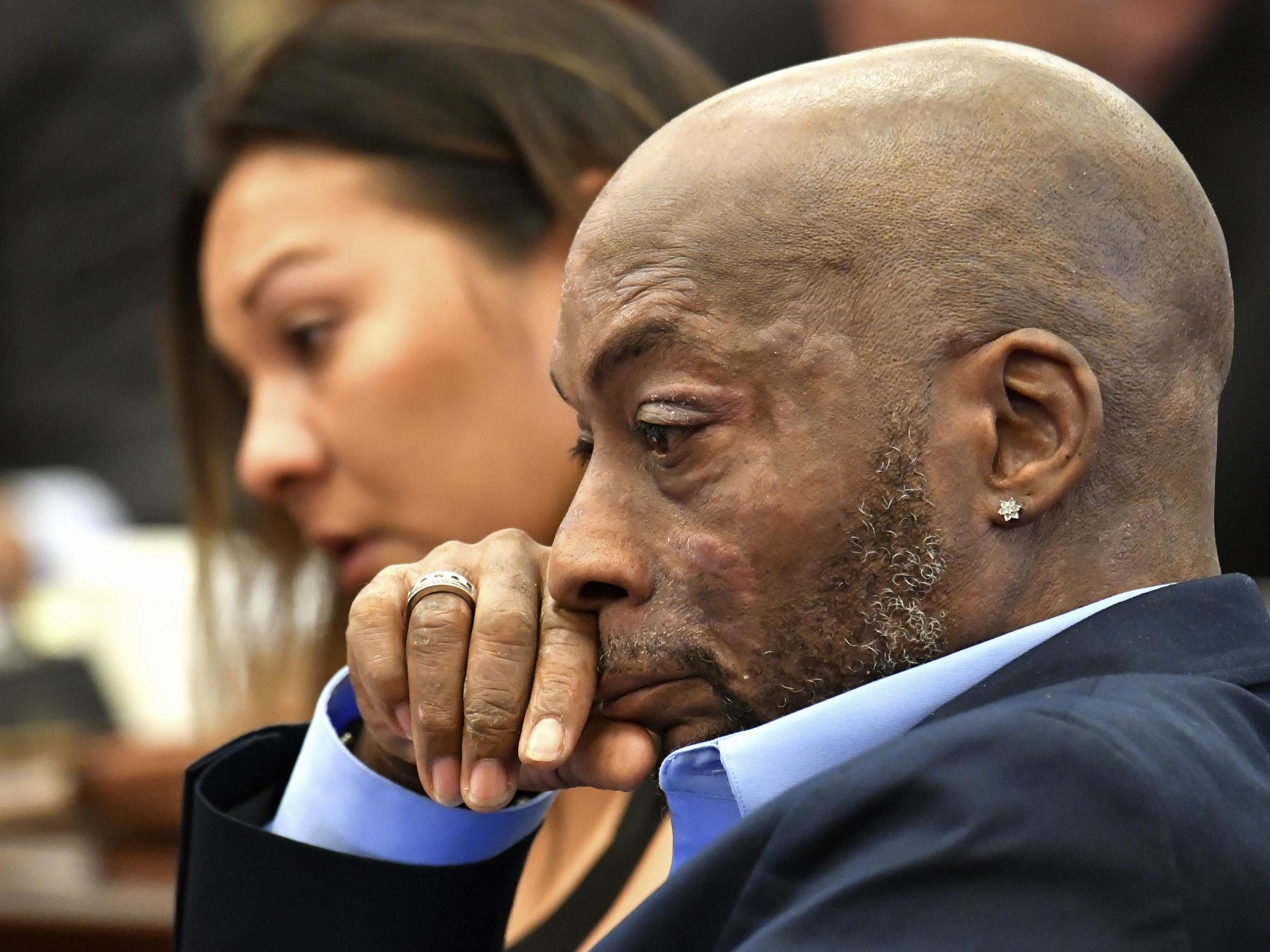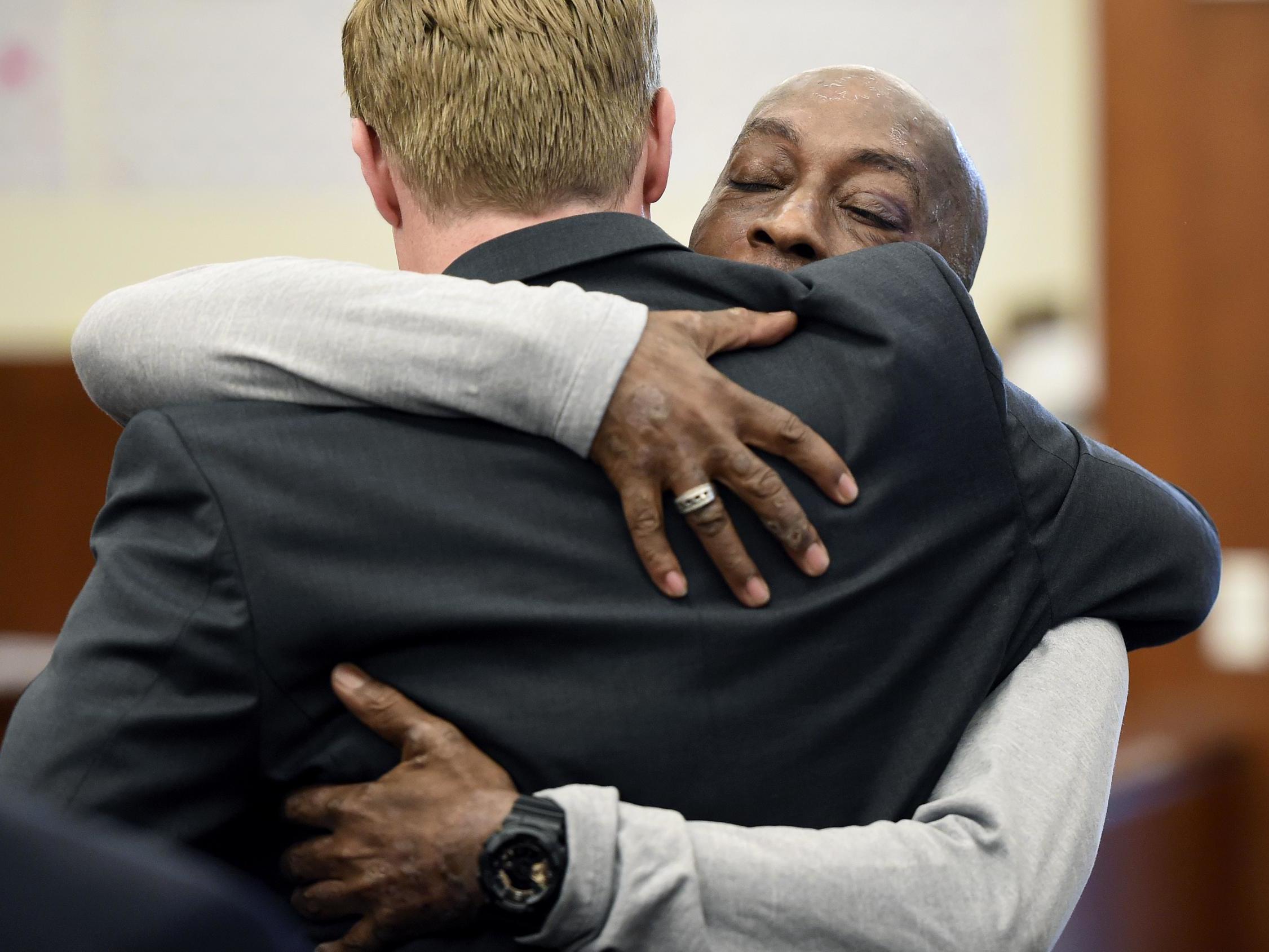Roundup maker Monsanto defends weedkiller after being told to pay $289m to groundsman who blames it for his terminal cancer
Monsanto vice-president Scott Partridge said the company would appeal the verdict to 'vigorously defend' the weedkiller

Your support helps us to tell the story
From reproductive rights to climate change to Big Tech, The Independent is on the ground when the story is developing. Whether it's investigating the financials of Elon Musk's pro-Trump PAC or producing our latest documentary, 'The A Word', which shines a light on the American women fighting for reproductive rights, we know how important it is to parse out the facts from the messaging.
At such a critical moment in US history, we need reporters on the ground. Your donation allows us to keep sending journalists to speak to both sides of the story.
The Independent is trusted by Americans across the entire political spectrum. And unlike many other quality news outlets, we choose not to lock Americans out of our reporting and analysis with paywalls. We believe quality journalism should be available to everyone, paid for by those who can afford it.
Your support makes all the difference.The maker of Roundup weedkiller has insisted it is safe despite being ordered to pay $289m to a school groundsman who claims it contributed to his terminal cancer.
In a landmark case, a jury in the US found that Monsanto's weedkiller, which contains the herbicide glyphosate, was a “substantial factor” in Dewayne Johnson’s illness and that the company failed to warn customers the product was dangerous.
Mr Johnson, 46, who was diagnosed with non-Hodgkin's lymphoma in 2014, was awarded the equivalent of £226m in damages on Friday having used Monsanto’s products Roundup and Ranger Pro in large quantities during the course of his work.
However Monsanto vice president Scott Partridge said the company would appeal the verdict to “vigorously defend this product”, claiming hundreds of studies showed the herbicide does not cause cancer.
“We all have sympathy for what Mr Johnson is going through; cancer is a terrible disease," Mr Partridge told BBC Radio 4’s Today programme on Saturday.
“I’ll tell you that this verdict doesn’t change the four plus decades of safe use and science behind the product.
“There have been over 800 medical scientific peer review published studies that have established there is no link whatsoever between glyphosate and adverse health effects, much less cancer."

Roundup is one of the country's most popular weedkiller brands, while glyphosate herbicides are the most widely used herbicide in UK agriculture.
Environmentalists say the weedkiller is linked to cancer, although the claim is strongly denied by manufacturers and the EU has approved the chemical for use.
In 2016, a joint report by the World Health Organisation (WHO) and the UN said that, while there was “some evidence of a positive association between glyphosate exposure and risk of non-Hodgkin's lymphoma in some studies, the only large study of high quality found “no evidence of an association at any exposure level”.
It concluded that glyphosate “is unlikely to pose a carcinogenic risk to humans from exposure through the diet”.
It came after the France-based International Agency for Research on Cancer, which is part of the WHO, said in 2015 that glyphosate was a “probable human carcinogen”.
In September 2017, the European parliament banned Monsanto lobbyists from meeting MEPs and attending parliamentary inquiries after the chemical company refused to attend a hearing into allegations that it interfered with safety studies.
Academics and regulators were due to hear allegations that Monsanto exerted undue influence over studies about glyphosate, the key ingredient in its Roundup weedkiller.
However later that year the European Union extended the licence for use of glyphosate for five years.
The court heard Mr Johnson used the weedkiller in large amounts while working in the San Francisco Bay Area school district.
When using the product in windy conditions it would come into contact with his face, and on one occasion he was left soaked in the weedkiller when a hose broke.
Mr Johnson is said to have contacted Monsanto after developing a rash but was never warned it could cause cancer, according to lawyer Brent Wisner.
Johnson thanked jurors “from the bottom of my heart”, along with his lawyers and his family.
His was the first case filed by a cancer patient against the agribusiness giant to reach trial and his victory could set a precedent for many others.
Agencies contributed to this report
Join our commenting forum
Join thought-provoking conversations, follow other Independent readers and see their replies
Comments